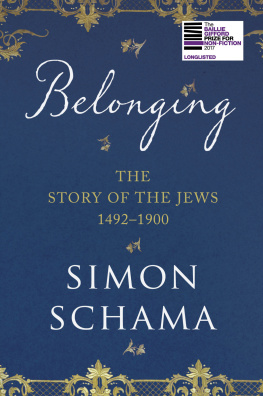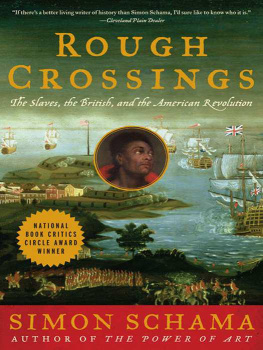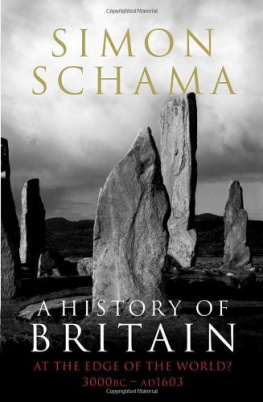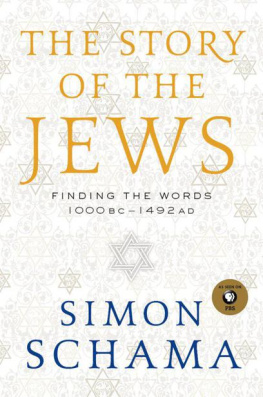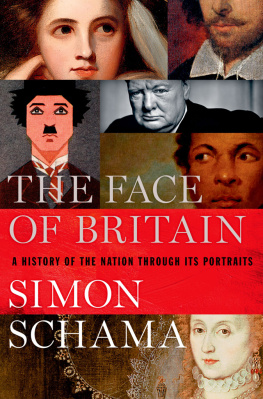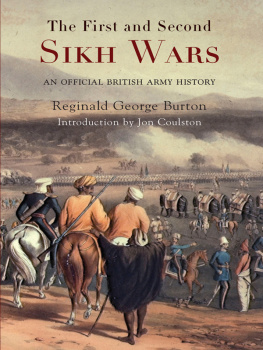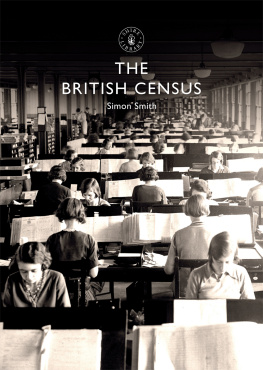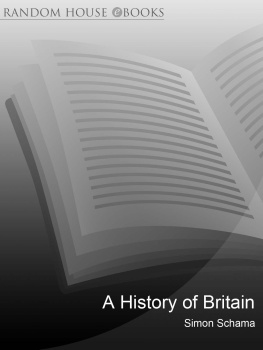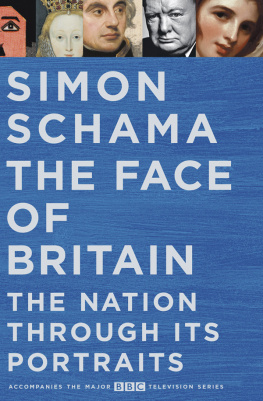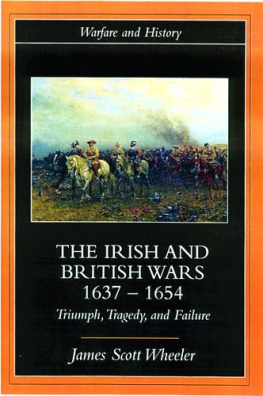CONTENTS
About the Book
Great Britain? What was that? asks Simon Schama at the start of this, the second book of his epic three-volume journey into Britains past. This volume, The British Wars , is a compelling chronicle of the changes that transformed every strand and stratum of British life, faith and thought from 1603 to 1776. Travelling up and down the country and across three continents, Schama explores the forces that tore Britain apart during two centuries of dynamic change transforming outlooks, allegiances and boundaries.
From the beginning of the British wars in July 1637, for 200 years battles raged on both at home and abroad, on sea and on land, up and down the length of burgeoning Britain, across Europe, America and India. Most would be wars of faith waged on wide-ranging grounds of political or religious conviction. But as wars of religious passions gave way to campaigns for profit, the British people did come together in the imperial enterprise of Britannia Incorporated.
The story of that great alteration is a story of revolution and reaction, inspiration and disenchantment, of progress and catastrophe, and Schamas evocative narrative brings it vividly to life.
About the Author
Simon Schama is University Professor of Art History and History at Columbia University and the prize-winning author of fourteen books, which have been translated into twenty languages. They include The Embarrassment of Riches: An Interpretation of Dutch Culture in the Golden Age ; Citizens: A Chronicle of the French Revolution ; Landscape and Memory ; Rembrandts Eyes ; Rough Crossings , which won the National Book Critics Circle Award; and most recently, The American Future: A History . He has written widely on music, art, politics and food for the Guardian , Vogue and the New Yorker . His award-winning television work as writer and presenter for the BBC stretches over two decades and includes the fifteen-part A History of Britain series; the Emmy-winning Power of Art and The American Future: A History which appeared on BBC2 in autumn 2008.
A History of Britain
The British Wars 16031776
Simon Schama
Narrative is linear. Action is solid. Alas for our chains and chainlets of causes and effects which we so assiduously track through the countless handbreadths of years and square miles when the whole is a broad, deep immensity and each atom is chained and complected with all... THOMAS CARLYLE, History from Frasers Magazine Vicos fantasia is indispensable to his conception of historical knowledge; it is unlike the knowledge that Julius Caesar is dead or that Rome was not built in a day or that thirteen is a prime number, or that the week has seven days; nor yet is it like knowledge of how to ride a bicycle or engage in statistical research or win a battle. It is more like knowing what it is to be poor, to belong to a nation, to be a revolutionary, to fall in love, to be seized by nameless terror, to be delighted by a work of art... ISAIAH BERLIN, Giambattista Vico and Cultural History Man is the only animal that laughs and weeps; for he is the only animal that is struck with the difference between what things are and what they ought to be. WILLIAM HAZLITT, Lectures on the English Comic Writers
PREFACE
IF ITS A truism that being British has never been a matter of straightforward allegiance, never was this more glaringly obvious than during the two centuries narrated by this book. Was this country an archipelago or an empire, a republic or a monarchy? Great Britain began as a grandiose fantasy in the head of James VI of Scotland and I of England, and ended as a startling imperial reality on the bloodied ramparts of Seringapatam. The confident chroniclers of the mind-boggling transformation, from sub-insular realms to global empire, liked to imagine that this history was somehow pre-ordained, unfolding naturally from the imperatives of geography and from a shared sense of the inevitability of a parliamentary monarchy. But never was a nations destiny less predictable, or less determined by the markers of topography, which said nothing about whether its bounds should be on the Tweed or the coast of Sligo, the Appalachians or the Bay of Bengal, nor whether those who decided such things should be thought of as the servants of the Crown or the representatives of the people.
It was these battles for allegiance the British Wars, between and within the nations of our archipelago, and then beyond in the wider world, between different and fiercely argued ideas about our historical and political inheritance that made us what we became. The creation of our identity was a baptism of blood.
But the slaughters were not always mindless. Crucially, for our future, they were often, even excessively, mindful. The Victorian historians, especially Macaulay, who believed the good fortune of British birth to be a reward won by the sacrifices of ancestors, are habitually berated in much modern scholarship for their detestably insular smugness, their fatuous error of reading history backwards and their habit of projecting on periods entirely innocent of parliamentary civics their own nineteenth-century preoccupations. Read those books, its said, and you are in a world drained of historical free will, of the uncertainty of outcomes, a past ordered to march in lock-step to the drumbeat of the Protestant, parliamentary future. But a dip, or better yet, a prolonged immersion in the great narratives of the last century Gardiner, Carlyle, and, to be sure, Macaulay suggest, to this lay reader anyway, anything but imprisonment in a universe of self-fulfilling prophecies. At their most powerful, those wonderfully complicated texts deliver the reader into a world shaking with terror, chaos and cruelty.
But it is true, certainly, that many of the grand narratives assumed that the long story they told was one of a battle of beliefs, rather than a mere imbroglio of interests, and that the eventual, admittedly partial, success of the party of liberty represented a genuine turning point in the political history of the world. If to tell the story again, and yet insist that that much is true, is to reveal oneself as that most hopeless anachronism, a born-again Whig, so be it.
New York, 2001
CHAPTER 1
RE-INVENTING BRITAIN
GREAT BRITAIN? WHAT was that? John Speed, tailor turned map-maker and historian, must have had some idea, for in 1611 he published an atlas of sixty-seven maps of the English counties, Wales, Scotland and Ireland, loftily entitled The Theatre of the Empire of Great Britaine. An energetic opportunist, Speed was taking advantage of King Jamess widely advertised desire to be known, not as the Sixth of Scotland and First of England, but as monarch of Britain. The fancy of a British history had been given fresh authority by William Camdens great compilation of geography, the antiquarian chronicle, Britannia, already in its sixth edition by 1607. On its frontispiece sat the helmeted personification of the island nation, flanked by Neptune and Ceres, together with an emblem of British antiquity Stonehenge thought to have been built by the Romano-British hero Aurelius.
But Camdens erudite work was originally in Latin, a volume for the shelves of a gentlemans library. Speed was after the public, sensing the excitement of even armchair travel, the need of the country to fix its place in the world, to contemplate, simultaneously, its past and its present. So the atlas, produced by John Sudbury and George Humbles print shop in Popes Head Alley, London, was not just a compilation of topographic information but a busy, animated production, full of comings and goings. Sites of historic interest, like the battlefields of the Wars of the Roses, were indicated by miniature sketches of horsemen and pikemen doing their worst; the colleges of Oxford and Cambridge by gowned scholars and coats of arms; royal palaces like Nonesuch and Windsor by elaborate pictorial illustration. On the map of Kent, ships, loaded with cargo, sailed up the Medway before Rochester Castle. Fifty towns were mapped for the first time, given their own insets, streets, markets and churches laid out for the prospective traveller or the proud resident. In this enterprising determination to be the first to provide a popular atlas for the new reign and the new century, the ex-tailor had no scruples about taking his shears to his predecessors. At least five of his maps of the English counties were pilfered more or less directly from the great Elizabethan cartographer Christopher Saxton (who had provided Burghley with his own pocket atlas) and another five from the English map-maker John Norden. For the single map of Scotland, which made good Speeds pretension of a British atlas, he relied on an earlier version by the Flemish cartographer and map-maker Gerardus Mercator, as well as on arcane information (Loch Ness never froze, horsemen speared salmon in the rivers) and on shameless flattery (the people being of good features, strong of body and courageous mien and in wars so virtuous that scarce any service of note hath been performed but they were the first and last in the field). His eastern Ireland was so accurate that he may have gone there in person, but the west was obviously an exotic mystery, peopled by the medieval chronicler Gerard of Waless fantasy that off the coast lay islands, some full of angels, some full of devils.
Next page

